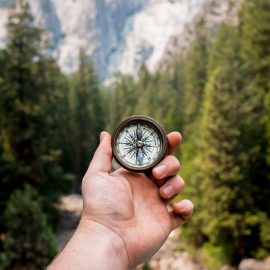

This article is an excerpt from the Shortform book guide to "Think Like a Rocket Scientist" by Ozan Varol. Shortform has the world's best summaries and analyses of books you should be reading.
Like this article? Sign up for a free trial here .
Do you want to know how to learn from failure? Do you get back up and go again, stronger and wiser than you were before?
“Failure is not an option.“ You’ve probably heard that phrase in connection with the Apollo 13 Moon landing mission. That’s the attitude of rocket scientists when lives are at stake. In all other cases, failure is not only an option, it’s a valued learning experience.
Read more to understand how to learn from failure.
Learn How to Learn From Failure
When you shoot for the moon, you’re likely to experience at least a few failures on your way to success. Varol argues that failing and learning from failure are two very different things, and the former does not guarantee the latter. Failure stings, so it’s more common for people to brush painful failures off and quickly move to salvage their ego than to sit down and closely examine exactly what went wrong. (Shortform note: Examining failures in order to learn from them is important, but it should be done in moderation. According to Awaken the Giant Within author Tony Robbins, dwelling too much on failure can create limiting beliefs about your potential and sabotage your future attempts at success.)
How Rocket Scientists Learn From Failure
According to Varol, rocket scientists have a complicated relationship with failure. Some missions (particularly those with human lives at stake) have very little room for failure. However, in every other scenario, failure is a normal part of life as a rocket scientist taking scientific risks. Therefore, scientists value “intelligent failure”: the kind of failure that can be learned from. Varol argues that good scientists approach their failures with genuine, disinterested curiosity. (Shortform note: According to Nassim Taleb in Antifragile, nuclear engineers adopted this mindset after the Fukushima nuclear disaster. Now, engineers assume that some form of failure is inevitable, so modern nuclear reactors are designed with built-in protections in the case of catastrophic failures.)
How You Can Learn From Failure
Here’s how Varol believes you can best learn from failure:
1) Cultivate psychological safety (an environment in which employees feel free to take smart risks and fail). To do this, Varol says, companies can reward “intelligent failures” either with compensation or praise and set a good example by having leaders share their failures publically. (Shortform note: According to The Culture Code author Daniel Coyle, another way to cultivate psychological safety is to encourage your team to have fun and genuinely enjoy themselves. This promotes a strong group bond and helps people feel safe to share their failures.)
2) Shift your thinking from short-term gains to long-term success to ensure you learn from each failure. This can help take the sting out of failure, which hurts in the short term but can be a valuable learning experience in the long run. (Shortform note: David Goggins, author of Can’t Hurt Me, recommends using a journal to process your feelings after a failure and help you learn from it. Try answering questions like, “How did the failure affect your relationships with others?”)
3) Consider the underlying causes. According to Varol, when something goes wrong, it’s tempting to identify the most obvious cause, fix that, and consider the whole issue resolved. However, the most obvious cause is often just a symptom, not the root of the problem. Dig deeper and find the root cause to truly solve the problem.
| Address the Real Issue, Not the Symptom Looking beyond the obvious symptoms to the hidden cause of an issue is difficult but important. Journalist Johann Hari opens his book, Lost Connections, with a story that illustrates this point. While on a trip to Vietnam, Hari became seriously ill with severe nausea. When he begged the doctors for anti-nausea medication, they refused: The nausea was only a symptom, but it could give them important information about the nature of his illness. Later, Hari learned that the nausea was a clue that his kidneys were shutting down, and listening to his symptoms had literally helped save his life. Similarly, when we wallpaper over the most obvious symptoms of a problem, it can obscure the real issue and prevent us from truly learning from the experience. |
Learning from failure is a necessary step on the path to success.

———End of Preview———
Like what you just read? Read the rest of the world's best book summary and analysis of Ozan Varol's "Think Like a Rocket Scientist" at Shortform .
Here's what you'll find in our full Think Like a Rocket Scientist summary :
- How to solve problems like billionaire entrepreneur Elon Musk
- Why you should treat your ideas like scientific hypotheses
- How to bounce back from failure and avoid complacency after success






